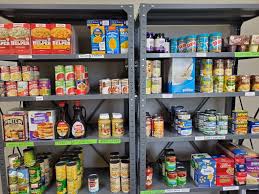Mushrooms Solving Pollution
February 28, 2020
World hunger and pollution are arguably the biggest issues in the world today. What if there was a way to solve both of these problems with just one plant? Recent discoveries have uncovered a plastic eating mushroom that cannot only solve pollution problems, but could possibly solve world hunger. These mushrooms, more commonly referred to as Pestalotiopsis Microspora, have the ability to decompose plastic. The mushrooms not only dissolve the plastic but also use the plastic as nutrients. 
Nationwide people are figuring out ways to reduce the plastic output, while getting rid of straws is a good idea, it will not solve pollution as a whole. Luckily, there is another way. In 2011, a team of undergraduates at Yale University discovered the “plastic-devouring” properties of these mushrooms. The students and the professor took a trip to Ecuador and found the Pestalotiopsis Microspora in the Amazon. They discovered that these plants can survive off of polyurethane, plastic. These plants can survive solely off of plastic, not requiring any other materials.

Plastic waste generation is exponentially increasing, with an estimated 88 to 242 million pounds of plastic debris per year in the oceans alone. This increase in plastic waste is could extremely detrimental to the Earth’s health and the people on it. While these mushrooms haven’t been fully incorporated into the system, they can make an impact regardless. The exact affect these mushrooms could have cannot be confirmed yet, but any impact is a big one when it comes to pollution. Moreover, these mushrooms can not only dissolve plastic, but can also possibly help world hunger. These mushrooms are a bulb like shape and can be eaten alone or filled with other foods. From start to finish the estimated time is a few months.
This fungi that results in a mushroom can dissolve plastic and feed millions. Plastic eating plants and food all in one, what will come next?







